My friend and colleague, Jim Kranzusch, is a chimp. I’m pretty sure he’s always been a chimp. He has even turned “chimp” into a verb (“I chimped him.”). Jim has a track record of being an effective manager, a natural leader, and a wise counselor – all due in no small part to the fact that he’s a chimp.
Several years ago we hosted author and teacher Jim Collins in a speaking engagement on his then new book, Good to Great. During that talk, he mentioned his research associates and how one of their most valuable – and very necessary – traits was their curiosity. He called them chimps. The nickname came from the children’s book series, Curious George, who was always eager to know or learn something. Ever since, Jim Kranzusch has been a chimp. By the way, to “chimp” someone is to engage them with curiosity.
Leadership is about change
Change usually begins with something like, “What if we…?” “Why do we do it this way?” “What makes sense in this case?” or “I don’t know. What do you think?” Questions can be a powerful management tool. Unfortunately, it’s a tool that we tend to misuse or not use. Many are simply unaware of the power of good questions. Others feel that as leaders, we have to have answers – not questions. There is a sense that good leaders are decisive, visionary, bold – and know all the answers.
Great questions define great leaders. If you really want to know how well someone is leading, look at his/her followers. Are they learning, growing, assuming more responsibility, and staying focused on actions that matter? Each of these descriptors can be traced back to the effective use of questions by the leader. Collins tells us in Good to Great, “Leading from good to great does not mean coming up with answers and then motivating everyone to follow your messianic vision. It means having the humility to grasp the fact that you do no yet understand enough to have the answers and then to ask the questions that will lead to the best possible insights.”
As one who leads, you are more valuable to your organization for the questions you pose than for the answers you provide.
Questions have a life to them. A statement can be easily ignored or dismissed. When you ask a provocative question, a poignant question, a purposeful question, a penetrating question, or a profound question that simply doesn’t have an answer at the moment, it doesn’t go into the other person’s mind and then disappear. It wanders around. It makes connections. It develops. It persists. It’s expectant. It may be demanding. It grows. It eventually comes into full bloom as an answer – and very likely, a better insight than you could have gotten by any other method.
Statements tend to push and shut down, while good questions are more likely to pull and open up. Statements stack up; good questions open up.
Quantity or quality?
Hint: generally it’s not a quantity problem; we ask plenty of questions:
- What’s the problem here?
- Who’s behind schedule?
- Who came up with that idea?
- You agree with me on this don’t you?
Many of our questions are not genuine requests for information, rather they cast blame, are manipulative in nature and intent, and frequently disempower rather than empower. They’re statements masquerading as questions! So our first task is to stop asking “bad” questions.
If we make statements that masquerade as questions, we should expect to get “answers” that masquerade as reality.
The search for great questions (those that cause a person to focus and grow, that challenge taken-for-granted assumptions, that generate breakthrough thinking, that help people “see” anew or with a broader perspective or a clearer grasp of the current reality) is never done. Some examples come from No Easy Victories by John Gardner:
- What things are forgotten in the heat of battle?
- What values get pushed aside in the rough-and-tumble of everyday living?
- What are the goals we ought to be thinking about and never do?
- What are the facts we don’t like to face?
- What are the questions we lack the courage to ask?
We have more to cover on this topic – in other posts. For now, get in the habit of asking yourself, “How would a chimp handle this?”
In Other Words…
“There is great tension in the world, tension toward a breaking point, and men are unhappy and confused. At such a time it seems natural and good to me to ask myself these questions. What do I believe in? What must I fight for and what must I fight against?” – John Steinbeck, East of Eden
“It is better to know some of the questions than all of the answers.” – James Thurber
“I’m much more interested these days in having debates about what the questions should be than I necessarily am about the solutions.” – Tim Brown, IDEO CEO, The New York Times
“If you weren’t already in a business, would you enter it today? And if the answer is no, what are you going to do about it?” – Peter Drucker to Jack Welch, 1981
“Much of the self-righteous nonsense that abounds on so many subjects cannot stand up to three questions: 1) Compared to what? 2) At what cost? and 3) What are the hard facts?” – Thomas Sowell
“I don’t feel I have to be loyal to one side or the other. I’m just asking questions.” – Juror #11, 12 Angry Men
“Be like Curious George, start with a question and look under the yellow hat to find what’s there.” – Jim Collins
“Profound questions get you profound answers.” – Bobb Biehl
“The leader of the past was a person who told. The leader of the future will be a person who asks.” – Peter Drucker
“If the world seems to have more questions than answers, try to be the one who asks the questions.” – Lucy, in Charlie Brown
In The Word…
“Jesus and his disciples went on to the villages around Caesarea Philippi. On the way he asked them, “Who do people say I am?” They replied, “Some say John the Baptist; others say Elijah; and still others, one of the prophets.” “But what about you?” he asked. “Who do you say I am?” – Mark 8:27-29a
In Linked Words…
Bowling Green State University, A Lifetime List of Dialogue Questions, by Walter Maner
Good Biographies Ask Big Questions, T. J. Stiles






